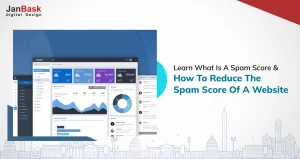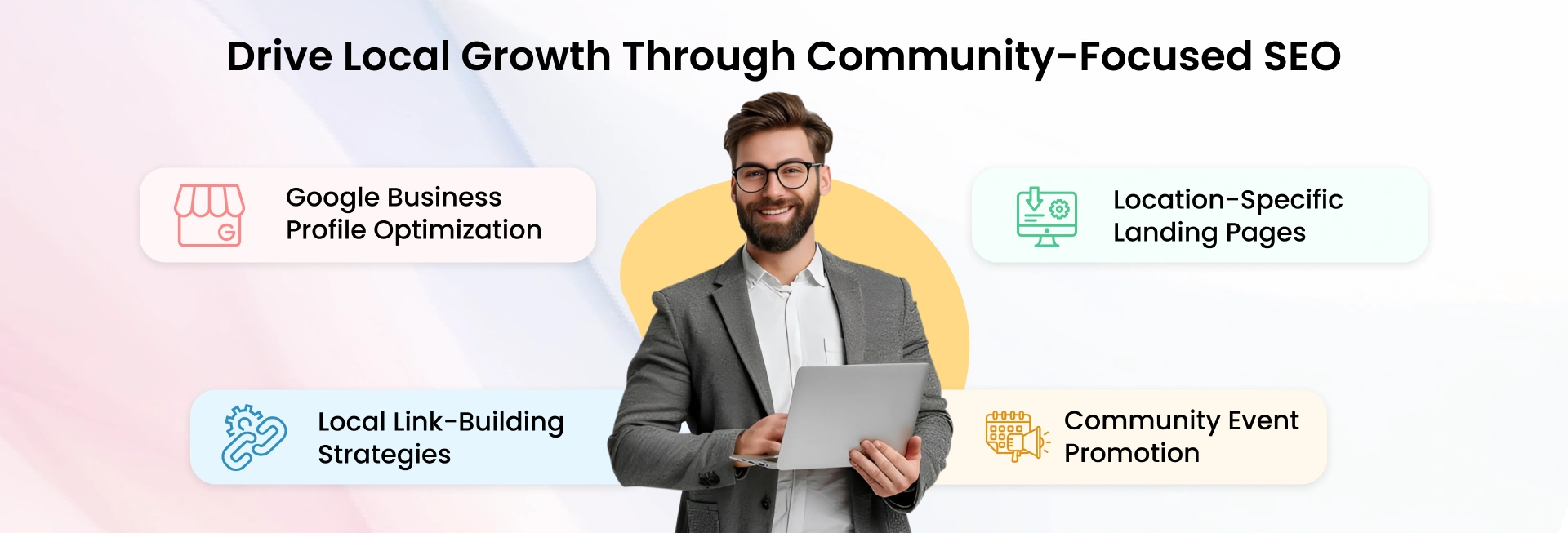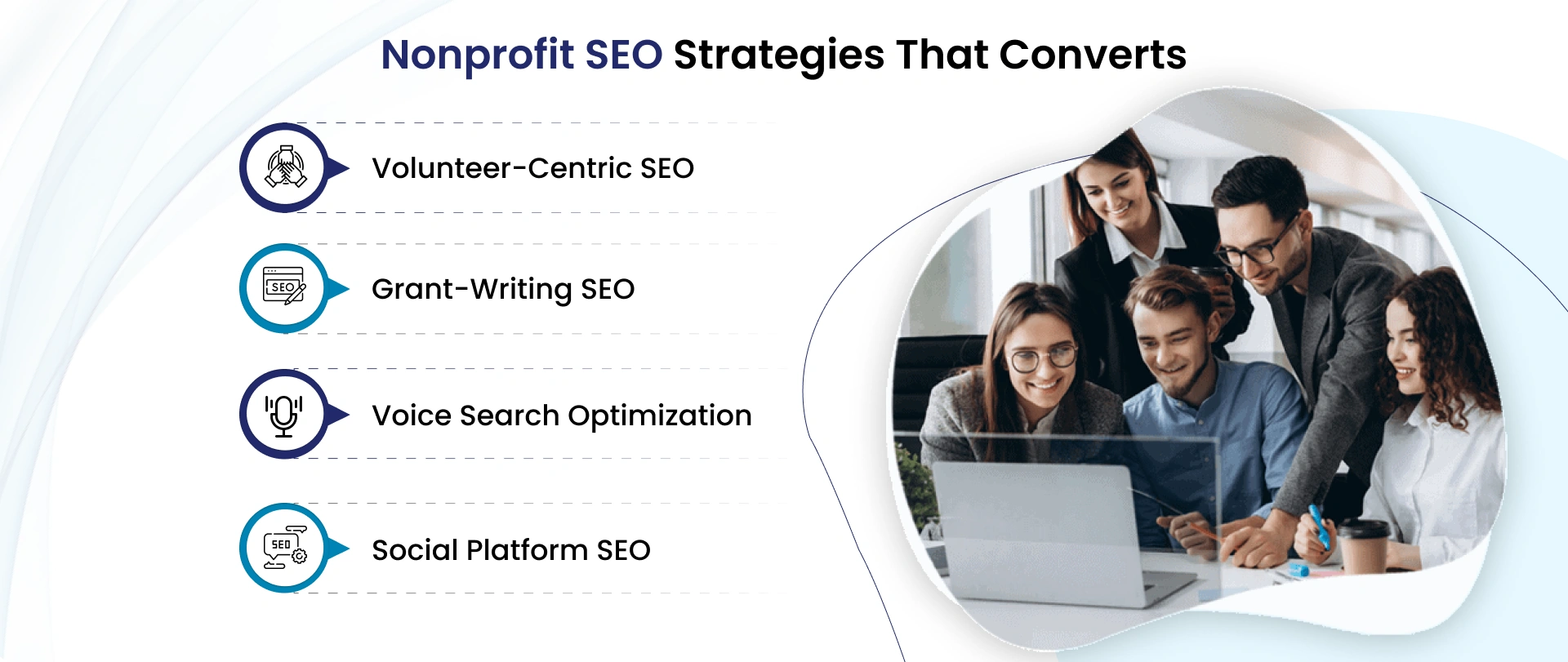
If someone searches for "volunteer opportunities near me" or "how to help homeless people in Chicago," will they come across your nonprofit? In the digital-first world of today, the way your organization appears in search results has a direct effect on your capacity to draw in funders, find volunteers, and eventually accomplish your goals. Nonprofits, in contrast to commercial enterprises that prioritize sales, require SEO tactics that are specific to their objectives: establishing credibility, proving their influence, and attracting volunteers and funding.
This blog is especially made for nonprofits who want to increase their online visibility without having to invest a lot of money or have a lot of technological expertise. You'll learn practical ways to raise your search engine exposure, find supporters who are as passionate as you are, and turn infrequent searches into ardent supporters of your cause, regardless of how big or small your charity is.
Understanding how SEO works for nonprofits is critical before diving into tactics. Let's look at the distinct ecosystem and metrics that matter most to mission-driven organizations.
Nonprofit SEO operates in a unique ecosystem in which mission alignment takes precedence over commercial intent. Your digital presence must cater to various audiences, including donors looking for transparency, volunteers searching for opportunities, grantmakers assessing impact, and community members in need of services. Google's algorithms prioritize Experience, Expertise, Authoritativeness, and Trustworthiness (E-E-A-T)—qualities that are ideal for well-run nonprofit organizations.
Success in nonprofit SEO goes far beyond traffic statistics. Instead of simply counting visitors, track meaningful conversions such as donation completions, volunteer sign-ups, resource downloads, and event registrations. Engagement metrics are especially important—time spent on impact stories and video completion rates demonstrate how effectively you're connecting with supporters. Geographic reach is critical for community-based organizations, especially when it comes to monitoring visibility for location-based searches.
Effective SEO for nonprofit does not require technical knowledge or a large budget. These foundational strategies will make your organization more visible to those looking for causes similar to yours.
Understanding what your supporters search for is the first step in identifying the right keywords. Begin by brainstorming terms related to your mission, services, and impact areas. For a homeless shelter, these phrases could mean "emergency housing assistance" or "donate winter coats." Use free tools such as Google Keyword Planner to learn about search volumes and competition levels. Focus on intent-based keywords that indicate a desire to take action "how to volunteer at food banks" will generate more engaged visitors than general terms such as "hunger issues."

Search engines rely heavily on the on-page elements of your website to determine the relevance of your content. Make compelling title tags that include your primary keyword and clearly state your value proposition "Volunteer with Chicago's Largest Youth Mentoring Program" is more effective than simply "Volunteer | Youth Organization." Create meta descriptions that compel action by summarizing the page's purpose and including a clear call to action. Structure your content with descriptive headers (H1, H2, H3) that naturally include secondary keywords while making it scannable for readers.
Effective nonprofit content relies on impactful storytelling. Share beneficiary stories, volunteer experiences, and tangible results of your work; these narratives engage readers and meet search engines' demand for comprehensive, valuable content. Create individual landing pages for each major program, service, or initiative, optimizing them for specific keyword clusters. Regularly publish new content that addresses common questions in your field; for example, a homelessness nonprofit could create guides on "How to Help Homeless People in Winter" or "Understanding Youth Homelessness Statistics."
Even the most compelling content can be hampered by technical issues. Make sure your website is mobile-friendly, as more than 60% of nonprofit-related searches are conducted on mobile devices. Increase page loading speed by compressing images, reducing code, and utilizing browser caching each second of delay reduces engagement. Implement HTTPS security to safeguard donor data and improve search rankings, as Google prioritizes secure websites. Create a clear site structure with logical navigation paths to help users and search engines quickly find important content.
Off-page SEO encompasses all activities beyond your website that impact your search rankings and visibility. Building backlinks from reputable sources, such as educational institutions (.edu domains) and government agencies (.gov domains), is a highly effective strategy for nonprofits to demonstrate their exceptional trustworthiness to search engines. Collaborate on research projects that generate natural connections, contribute guest posts to industry publications, or offer testimonials to aligned organizations. Digital PR strategies, including the dissemination of impact reports, the sharing of success stories with local media, and the response to journalist inquiries through platforms such as HARO (Help A Reporter Out), can significantly increase your authority. It is important to remember that quality is more important than quantity. A single backlink from a highly respected organization in your field is worth more than dozens of links from irrelevant or low-quality sites, making strategic relationship-building a critical component of your nonprofit's SEO success.
Local SEO is an excellent way for nonprofits that serve specific geographic areas to connect with nearby supporters and those looking for your services. These strategies will ensure that you appear prominently in location-specific searches.

Your Google Business Profile (previously Google My Business) serves as your nonprofit's digital storefront for local searches. Please claim and verify your listing, and then enhance it by providing accurate information about your location, hours, and services. To earn the trust of potential visitors, include compelling photos of your facility, team members, and events. Post updates about upcoming events, volunteer opportunities, and success stories on a regular basis; these posts appear in search results and demonstrate active community engagement.
If your organization operates in multiple areas or neighborhoods, create separate pages for each one. Optimize these pages for location-specific keywords such as "food pantry in South Chicago" and "youth mentoring in Brooklyn." Include information specific to each community, such as local statistics, testimonials from residents, and information about neighborhood-specific programs. These pages help you rank in highly targeted searches while also providing useful information to local supporters.
Building relationships with local organizations opens up opportunities for valuable backlinks, which increase your local search visibility. Join forces with local businesses, schools, religious organizations, and government agencies to launch joint initiatives, and then request mentions on their websites. Submit your event to community calendars and local news websites. Encourage board members and volunteers to mention your organization on their company websites or personal blogs when appropriate, resulting in a network of local citations that increase your geographic relevance.
Events provide excellent opportunities to boost local SEO while also engaging your community. Create dedicated pages for each major event, optimizing them with structured data markup to appear in Google's event carousel. Include complete date, time, location, and registration information. Promote events via local media outlets, community forums, and neighborhood social media groups to generate backlinks and social signals that reinforce your local relevance while increasing attendance.
While fundamental SEO strategies provide a solid foundation, these advanced tactics can help your nonprofit stand out in competitive search landscapes and reach supporters through novel channels.

Most nonprofits focus their SEO efforts on donations, but optimizing for volunteer recruitment presents a significant opportunity. Create dedicated landing pages for volunteer-specific keywords such as "weekend volunteer opportunities" or "skills-based volunteering." Implement schema markup for volunteer events to ensure they appear prominently in search results, complete with dates, times, and sign up information. Share volunteer testimonials with descriptive keywords that correspond to how people look for meaningful experiences "how volunteering at animal shelters changed my life" can attract passionate supporters looking for a purpose.
Foundations and institutional funders use search engines to find potential grantees. To appear in these searches, optimize your website by creating content around funding-related keywords such as "innovative youth programs seeking grants" or "environmental conservation funding opportunities." Ensure that your downloadable resources, such as annual reports, program evaluations, and impact studies, contain keyword-rich filenames and metadata. Highlight previous grant successes and collaborations with reputable funders, as these mentions demonstrate credibility to both search engines and potential supporters.
As voice assistants gain popularity, optimizing for conversational queries becomes more important. Create content that answers natural language questions such as "Where can I donate clothes near me?" or "How can I volunteer to help the homeless?" Create a comprehensive FAQ section that answers common questions about your cause, services, and ways to get involved. Focus on local voice search by including phrases like "near me" or specific neighborhood names in your content, as voice searches frequently have local intent when users are looking for organizations to support.
Each social media platform acts as its own search engine, with distinct algorithms. Optimize your profiles on multiple platforms by including relevant keywords in bios, descriptions, and about sections. Create YouTube content that answers common questions in your field, including keyword-rich titles, descriptions, and tags. For Instagram and TikTok, look up trending hashtags related to your cause and strategically use them in posts. Cross-link your social profiles and website to create a unified digital ecosystem that boosts your overall search presence and drives traffic from multiple sources.
Even well-intentioned SEO efforts can fail if you don't recognize these common mistakes. Recognizing and avoiding these pitfalls will save your nonprofit valuable time and money.

To rank higher, some nonprofits resort to keyword stuffing, which involves unnaturally cramming target phrases into content. This out-of-date tactic not only provides a poor user experience, but it can also result in Google penalties. Instead, concentrate on producing useful, reader-friendly content that incorporates keywords organically. A page that genuinely explains "how to support homeless veterans" will outperform one that simply repeats the phrase. Remember that Google's algorithms are increasingly prioritizing user experience and can tell when content is intended for humans rather than search engines.
With over 60% of nonprofit-related searches taking place on mobile devices, failing to optimize for mobile users means missing out on potential supporters. Mobile-unfriendly websites with tiny text, horizontal scrolling, or buttons that are too small to tap cause frustration and a high bounce rate. Google prioritizes your site's mobile version when determining its rankings. Invest in responsive design, which automatically adjusts to different screen sizes, and test your site on multiple devices on a regular basis to ensure that all functions work properly for mobile visitors looking to donate, volunteer, or access services.
Many nonprofits, particularly those that serve specific communities, overlook the importance of local SEO. Failure to claim and optimize your Google Business Profile means missing out on map pack results, which are local listings that appear at the top of location-based searches. Similarly, not including location-specific content prevents you from ranking for "near me" searches, which have increased by more than 900% recently. Local visibility often translates directly into increased support for community-based organizations, so prioritize strategies that improve your presence in geographic searches relevant to your service areas.
Without proper tracking, you will be unable to determine which SEO efforts are effective and which require adjustment. Many nonprofits make changes without first establishing baseline metrics or setting up analytics to track progress. Install Google Analytics and Search Console to monitor key performance indicators such as organic traffic growth, keyword rankings, and conversion rates for critical actions like donations or volunteer sign-ups. Schedule regular data reviews to identify trends, celebrate successes, and adjust underperforming strategies. Remember that SEO is an ongoing process that necessitates continuous improvement based on performance metrics.
Effective SEO doesn't necessitate costly tools or specialized knowledge. These carefully chosen resources will assist your nonprofit in increasing search visibility while remaining within your budget.

Several powerful free tools can assist you with your SEO efforts. Google Search Console shows how search engines see your site, which keywords drive traffic, and identifies technical issues that need to be addressed. Google Analytics provides detailed information on visitor behavior, allowing you to determine which content resonates with supporters. Ubersuggest provides limited free access to keyword research, competitor analysis, and content ideas geared toward nonprofit organizations. Google Business Profile Manager allows you to control how your company appears in local search results and on Google Maps.
The Google for Nonprofits program provides eligible organizations with valuable resources that go beyond the standard free tools. This includes Google Ad Grants, which provide up to $10,000 per month in free search advertising, a fantastic opportunity to appear at the top of search results for competitive keywords. The program also includes YouTube Nonprofit Program benefits, Google Workspace for Nonprofits, and reduced rates on a variety of Google services. These resources can significantly improve your SEO efforts while keeping your budget for mission-critical tasks.
Measuring what matters is essential for effective SEO. Beyond basic analytics, consider using heat mapping tools, such as Hotjar's free plan, to visualize how users interact with your website. Set up goal tracking in Google Analytics to track specific conversion actions such as donation form submissions or volunteer sign-ups. To keep everyone up to date on SEO progress, consider shared dashboards through Google Data Studio (now Looker Studio). These analytics solutions assist in transforming raw data into actionable insights that will guide your optimization efforts.
Several organizations offer specialized SEO services to nonprofits. TechSoup provides discounted access to SEO tools and training tailored to nonprofit organizations. The Nonprofit Technology Network (NTEN) offers webinars and resources on digital marketing challenges specific to the social sector. Many marketing firms also publish nonprofit-specific SEO guides and case studies that can help you develop your strategy. These sector-specific resources assist in translating general SEO principles into approaches that work for mission-driven organizations with limited resources and distinct goals.
Rather than a one-time chore, implementing good SEO for your nonprofit is a continuous road. Start with a thorough examination of your present website, finding immediate victories such as title tag and meta description optimization. Then create a sustainable content calendar including the tactics we have covered and answers to your supporters' main queries. Keep in mind that SEO outcomes usually take three to six months to completely materialize; thus, patience and consistency are absolutely vital.
Agencies like JanBask Digital Design provide particular nonprofit SEO services that can speed your outcomes for charities searching for professional advice. Our team knows the particular issues confronting mission-driven organizations and has assisted many charities in improving their online presence using customized solutions. The most crucial action is to start optimizing your nonprofit's digital presence right now, regardless of whether you decide to do these tactics in-house or with professional help.
Discover SEO Strategies That Drive Real Impact for Nonprofits

Leave a Reply